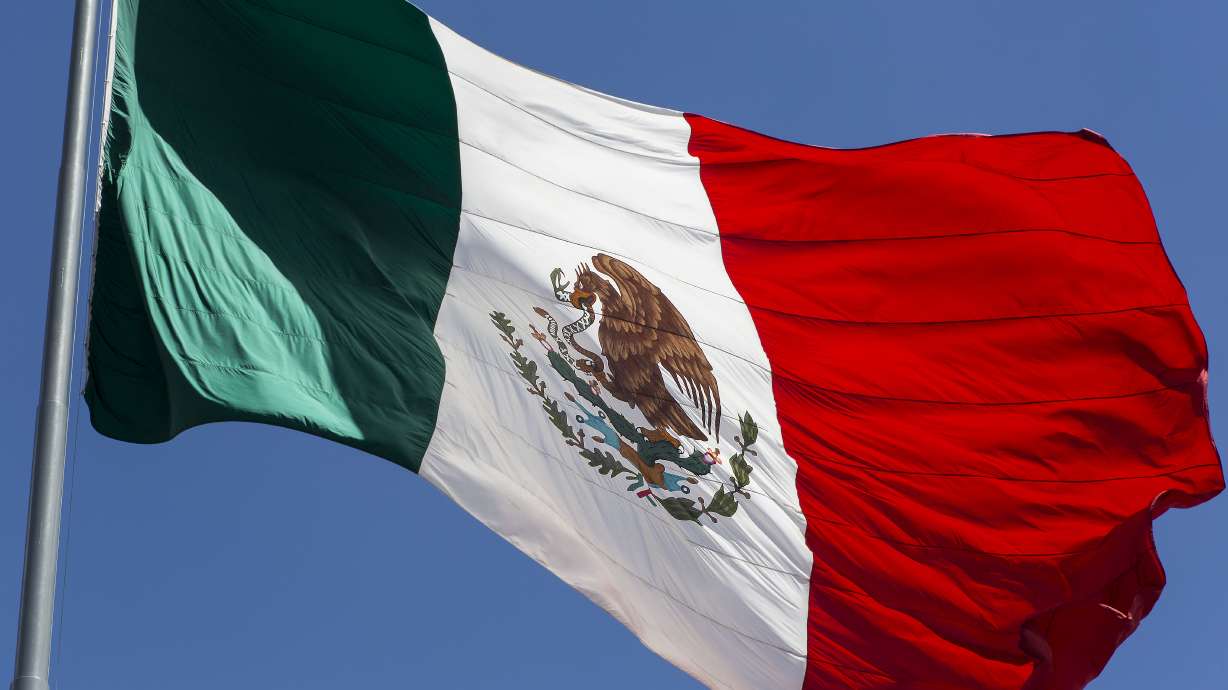Estimated read time: 4-5 minutes
This archived news story is available only for your personal, non-commercial use. Information in the story may be outdated or superseded by additional information. Reading or replaying the story in its archived form does not constitute a republication of the story.
SALT LAKE CITY — Utah’s ongoing trade relationship with Mexico is at a critical point as the new White House administration’s commerce policies begin to take shape, a local expert contends.
Speaking to an audience of business leaders Wednesday in downtown Salt Lake City, Derek Miller — president and CEO of World Trade Center Utah — said Utah stands to lose millions of dollars if President Donald Trump decides to reduce trade with our nation’s neighbor to the south.
“We export $12 to $13 billion worth of goods and services, with a trade surplus of about $4 billion,” he said.
He noted that how much Utah will be impacted would be determined by how trade agreements are handled by the new administration.
“What companies need above all else is certainty and predictability,” Miller said. “Having trade deals is really just setting the ‘rules of the game’ — the rules that a company in Utah will know it has to live by and they also know their partners in other countries have to live by.”
He said having rules-based trading is “important for prosperity.”
Trade deals like the North American Free Trade Agreement have been instrumental in helping the state’s economy flourish over the past decade, he said.
“NAFTA has been a benefit to Utah as we’ve seen our exports increase over the last 10 years from $250 million each year to $750 million (annually),” he said. “That’s because there is certainty in the marketplace.”
He told the audience that making protectionist changes to such agreements would be detrimental to the local economy and to the nation at-large in the long run. But at more than 20 years old, NAFTA is due for some adjustments to reflect changes in global trade over the past two decades, he noted.
“We probably need to make some updates, particularly in the area of information technology,” he said. “There are so many things in the IT industry that didn’t even exist 20 years ago that we need to take a look at.”
Noting that 42 percent of Utah’s foreign-born population is originally from Mexico, Miller said forging a mutually beneficial trade relationship is something that will serve the state well for decades to come. He also said revising NAFTA would likely be less time-consuming than scrapping the whole thing and starting from scratch — which “would take a lot longer.”
Related
Meanwhile, Miller suggested that one of the major issues facing the nation that could have a significant effect on trade relations is immigration. He described the state of the current immigration system as “broken.”
“It doesn’t do anything to keep people from coming into this country for nefarious purposes and at the same time it doesn’t let people who want to come for well-intentioned purposes to come in efficiently,” Miller said. “So not only is it broken, but it’s also upside down.”
He said national policymakers would have to devise a better system that would secure the border and also allow good people to immigrate legally, thereby benefiting everyone.
“That’s the kind of system that would allow us to have a robust economy (and) allow us to address undocumented immigrants,” he said. “If we secure the border, then the mood of the country would be such that they would want to deal with (undocumented) immigrants (already here) in a humane and charitable way.”
Lastly, he noted that the Trump administration’s protectionist rhetoric would not serve the country’s economic interests in the long term. He hopes that policymakers come to that realization sooner rather than creating an environment that will be economically damaging later.
“Sometimes we hear the president talk about fair trade, but its got to be really fair,” Miller said. “I’m hopeful and optimistic that we have leadership in Washington, D.C., that says, ‘Let’s create an environment where we can have fair trade that will benefit U.S. companies and benefit Utah companies.’”
He added that Trump could look to Utah as a model of economic success.
“Our companies have figured out a way to make it work,” he said. “They are not just competing in the global economy, they’re winning.”










